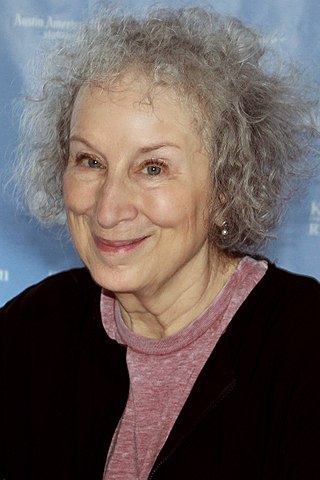
Margaret Atwood and Amitav Ghosh were joint recipients of the 2010 Dan David Prize which includes a cash purse of $1,000,000. Groups supporting the boycott, divestment and sanctions movement for Palestine called on Atwood to boycott the prize as a show of solidarity with Palestinians.
Atwood chose to ignore the criticism and accepted the prize yesterday. As a consequence, she has been on the receiving end of some pretty stern criticism. See here for an example. However, Atwood isn’t budging. You can read the joint acceptance speech on her Year Of The Flood blog which acknowledges the criticism. It is worth quoting:
Propaganda deals in absolutes: in Yes and No. But the novel is a creature of nuance: of perhaps, of maybe. It concerns itself, not with gods and demons, but with mortal people, with their flawed characters, their unsatisfactory bodies, their sufferings, their limited and often wrong choices; with the dubiousness of their own actions and the unfairness of their fates.
Atwood’s statement pretty much captures the nature of this debate: perspectives have become so polarized that, in demonizing the right, the left has drawn itself into a band of rabid fundamentalists who are willing to poison public debate. They allow no room for nuance.
There is the suggestion that acceptance of the prize is an endorsement of Israel. Or that it represents a politically motivated manipulation of those like Atwood who are influential in arts communities. But what is the Dan David Prize? Is it a creature of the Israeli government? According to the Dan David Prize website, Dan David is a successful businessman who developed a photographic technology. He established the prize “to foster universal values of excellence, creativity, justice, democracy and progress and to promote the scientific, technological and humanistic achievements that advance and improve our world.” In other words, it’s a prize founded by a private philanthropist to honour endeavors that make the world a better place.
To bring the issue closer to home, it’s kind of like Canada’s Griffin Poetry Prize, a privately funded purse to encourage literary excellence both at home and abroad. Imagine how Scott Griffin might scratch his head in puzzlement if an international recipient were to announce that she was declining the prize because the Harper Conservatives have established an oppressive regime that is systematically defunding progressive causes. He’d probably say: “Yeah, but I’m one of the good guys.” (To be honest, I don’t know Griffin’s politics, but whatever they are, he likes poetry so he can’t be all bad.)
Don’t get me wrong: I sympathize with the boycott & divestment movement. And, as I have made clear on previous occasions, some of the Israeli government’s policies and actions are heinous. But Ms. Atwood is right. Part of her job as a novelist is to present to the world a nuanced view of things.
As I see it, there are two things in this instance that are seriously unnuanced:
1. Drawing a strict analogy between Israel and South Africa. This is part of the rationale for boycott and divestment. Applying syllogistic logic, if Israel is like South Africa, and if boycotts worked to end South African apartheid, then boycotts should work in the case of Israel too. But the first premise isn’t true. Israel is unlike south Africa in so many ways. That’s matter for another time. It’s worth noting however that even the BDS site acknowledges that, although comparisons are useful, nevertheless the situation in Israel must be assessed on its own terms.
2. Imposing moral demands on private individuals. If the object of breaking colonial oppression is to create conditions for self-determinism, then it is hypocritical to deny that, on the path to self-determinism, those who disagree with the BDS approach do not have the right to self-determine with respect to their disagreement. That’s a convoluted sentence, but what it boils down to is that Atwood’s critics are incoherent.
This isn’t a disagreement about politics or justice or social aspirations. This is a disagreement about methodology. Not everybody on the planet has to be an extremist. And thank god for that, otherwise our species would have gone up in smoke ages ago.
Photo Credit: Larry D. Moore [CC BY-SA 4.0 (https://creativecommons.org/licenses/by-sa/4.0)]
